fMRI
Recent articles
Cerebellum responds to language like cortical areas
One of four language-responsive cerebellar regions may encode meaningful information, much like the cortical language network in the left hemisphere, according to a new study.
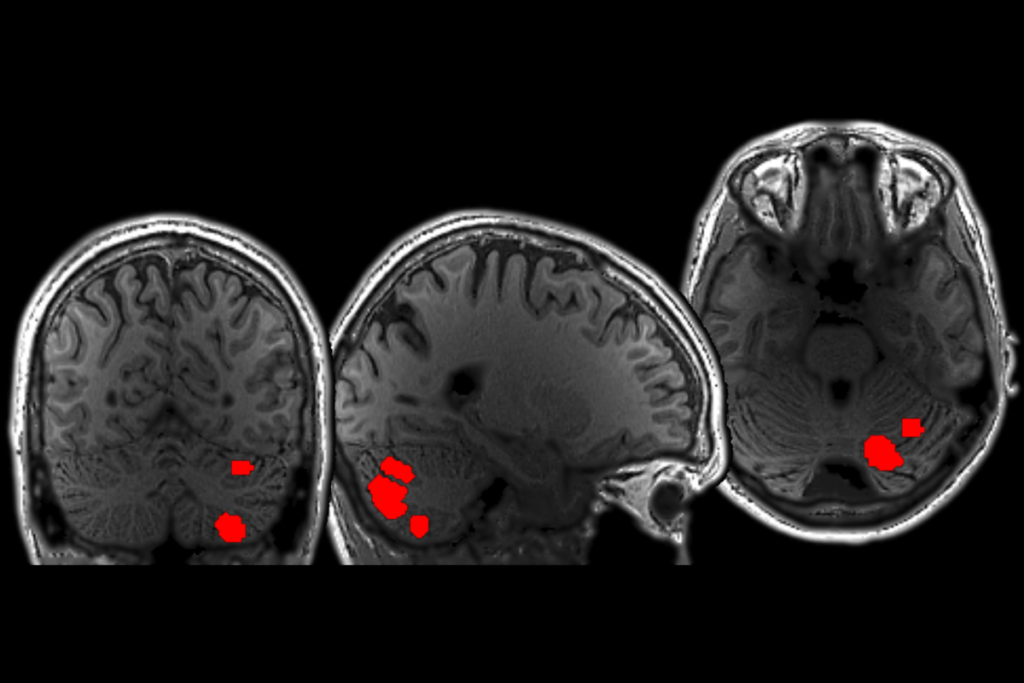
Cerebellum responds to language like cortical areas
One of four language-responsive cerebellar regions may encode meaningful information, much like the cortical language network in the left hemisphere, according to a new study.
A brief history of precision self-scanning
When a researcher solved a logistical problem by going rogue, the idea proved remarkably infectious.

A brief history of precision self-scanning
When a researcher solved a logistical problem by going rogue, the idea proved remarkably infectious.
Some facial expressions are less reflexive than previously thought
A countenance such as a grimace activates many of the same cortical pathways as voluntary facial movements.

Some facial expressions are less reflexive than previously thought
A countenance such as a grimace activates many of the same cortical pathways as voluntary facial movements.
‘Wired for Words: The Neural Architecture of Language,’ an excerpt
In his new book, Hickok provides a detailed overview of the research into the circuits that control speech and language. In this excerpt from Chapter 5, he shares how meeting his colleague David Poeppel led to them developing the theory for bilateral speech perception.
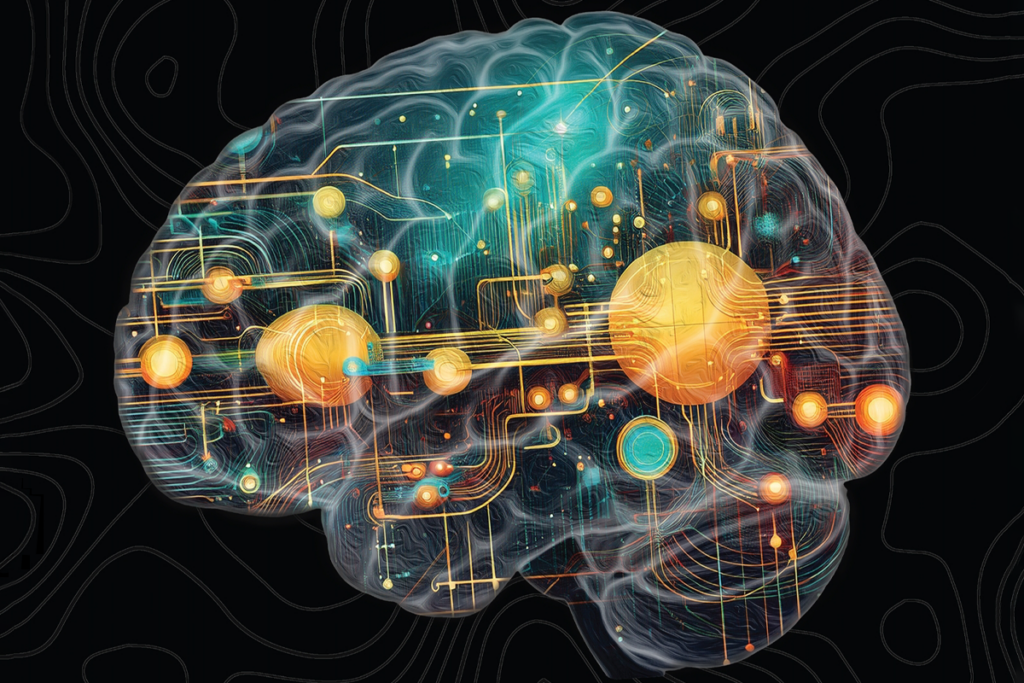
‘Wired for Words: The Neural Architecture of Language,’ an excerpt
In his new book, Hickok provides a detailed overview of the research into the circuits that control speech and language. In this excerpt from Chapter 5, he shares how meeting his colleague David Poeppel led to them developing the theory for bilateral speech perception.
What are the most-cited neuroscience papers from the past 30 years?
Highly cited papers reflect the surge in artificial-intelligence research in the field and other technical advances, plus prizewinning work on analgesics, the fusiform face area and ion channels.

What are the most-cited neuroscience papers from the past 30 years?
Highly cited papers reflect the surge in artificial-intelligence research in the field and other technical advances, plus prizewinning work on analgesics, the fusiform face area and ion channels.
Putting 50 years of neuroscience on the map
Navigate the rise and fall of research topics over five decades using our interactive map, which is based on a semantic analysis of nearly 350,000 abstracts in leading neuroscience journals.
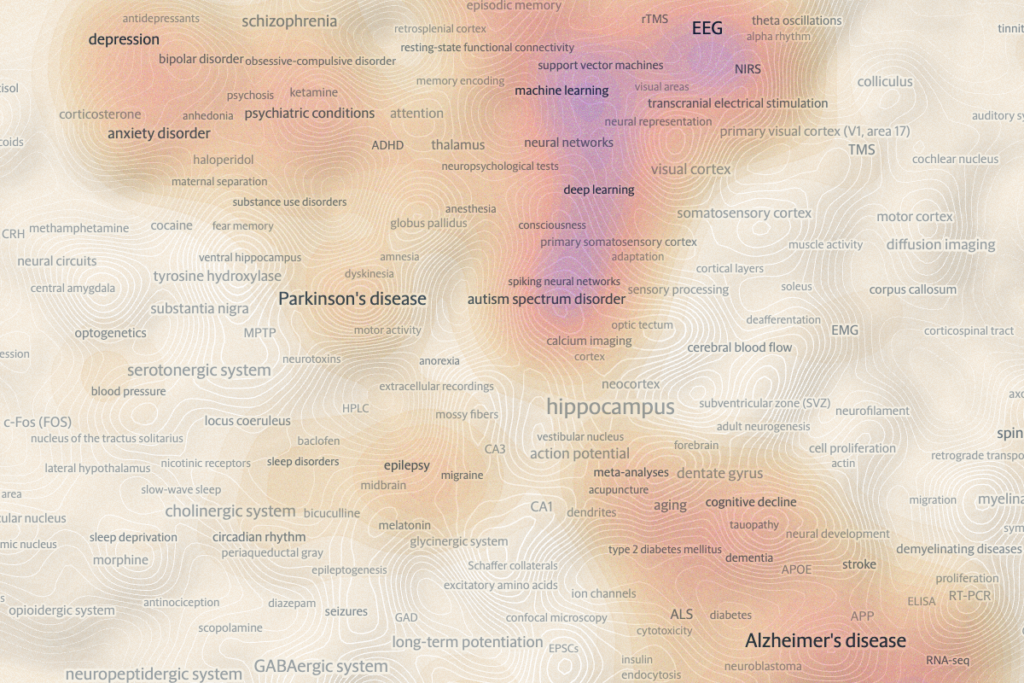
Putting 50 years of neuroscience on the map
Navigate the rise and fall of research topics over five decades using our interactive map, which is based on a semantic analysis of nearly 350,000 abstracts in leading neuroscience journals.
Aging as adaptation: Learning the brain’s recipe for resilience
Some age-related changes in the brain and in behavior are not solely the result of cognitive decline but rather part of a larger adaptive process.
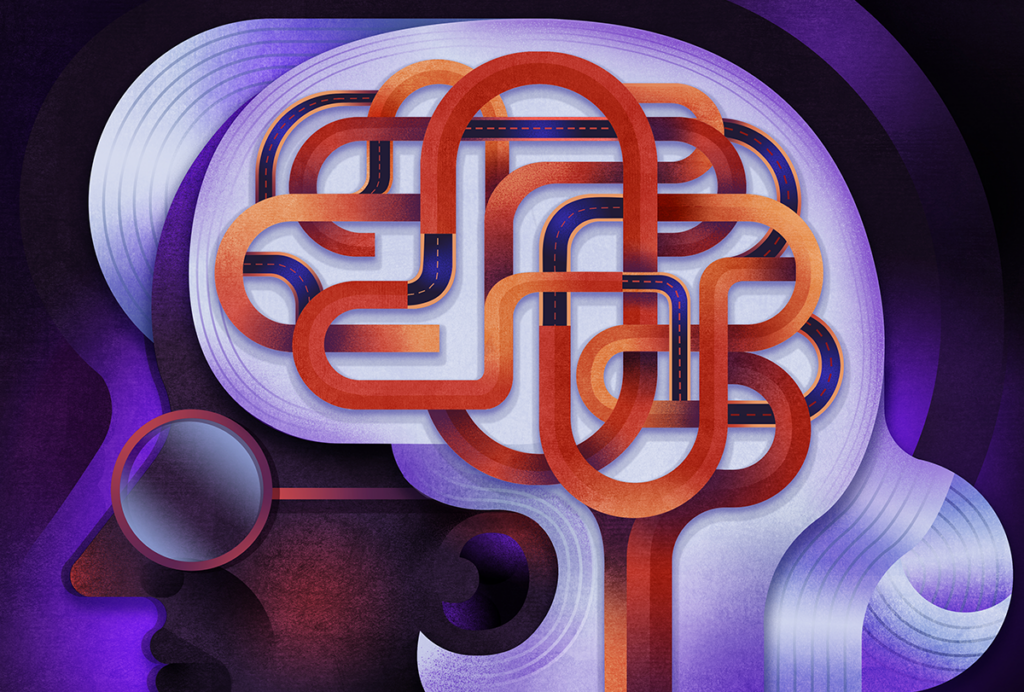
Aging as adaptation: Learning the brain’s recipe for resilience
Some age-related changes in the brain and in behavior are not solely the result of cognitive decline but rather part of a larger adaptive process.
Timing tweak turns trashed fMRI scans into treasure
Leveraging start-up “dummy scans,” which are typically discarded in imaging analyses, can shorten an experiment’s length and make data collection more efficient, a new study reveals.

Timing tweak turns trashed fMRI scans into treasure
Leveraging start-up “dummy scans,” which are typically discarded in imaging analyses, can shorten an experiment’s length and make data collection more efficient, a new study reveals.
Psychedelics muddy fMRI results: Q&A with Adam Bauer and Jonah Padawer-Curry
The drugs disrupt the link between vascular and neuronal activity, which complicates interpretations of fMRI data. Adopting a more holistic view of what constitutes brain activity may help, the researchers say.
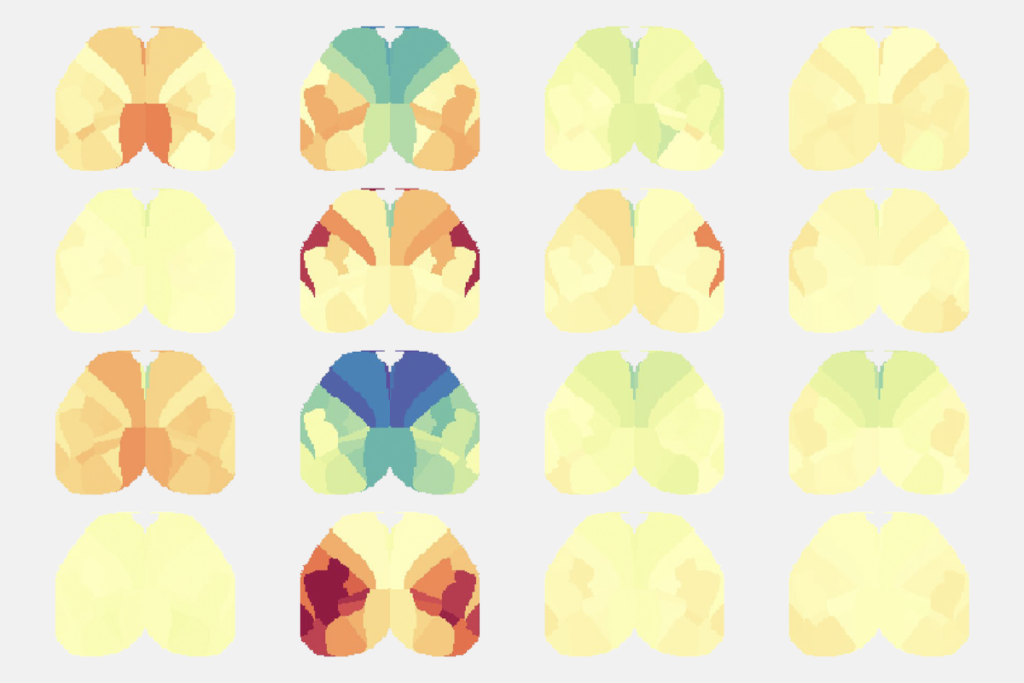
Psychedelics muddy fMRI results: Q&A with Adam Bauer and Jonah Padawer-Curry
The drugs disrupt the link between vascular and neuronal activity, which complicates interpretations of fMRI data. Adopting a more holistic view of what constitutes brain activity may help, the researchers say.
Authors retract Science paper on controversial fMRI method
Several known but usually negligible MRI artifacts contribute to the neuronal activity signal picked up by the method, according to a preprint the authors posted earlier this month.
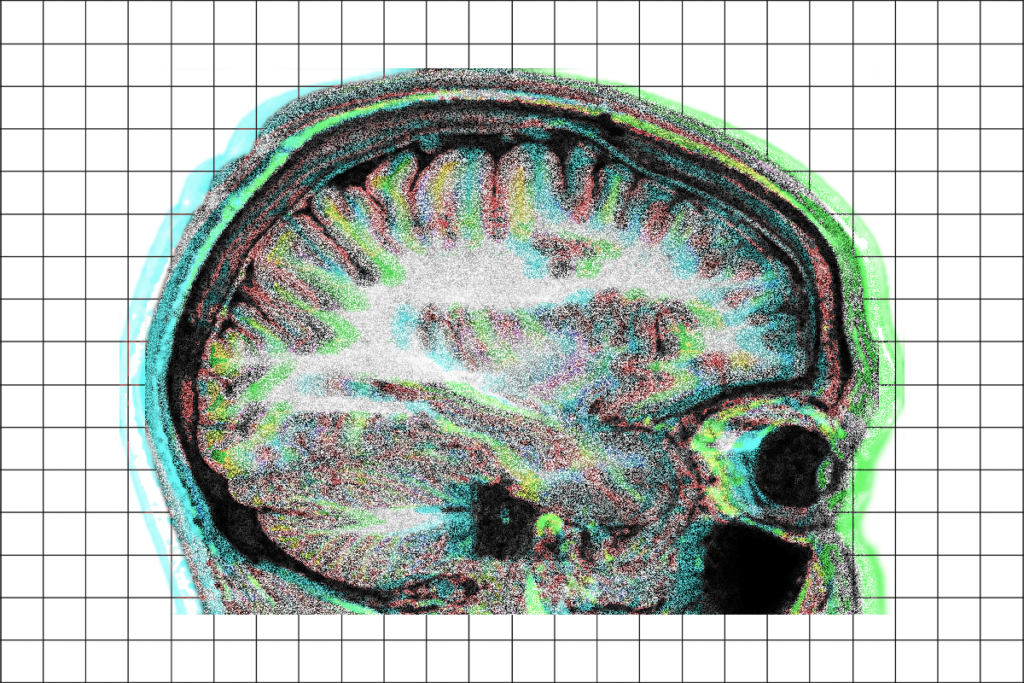
Authors retract Science paper on controversial fMRI method
Several known but usually negligible MRI artifacts contribute to the neuronal activity signal picked up by the method, according to a preprint the authors posted earlier this month.
Explore more from The Transmitter
Frameshift: Raphe Bernier followed his heart out of academia, then made his way back again
After a clinical research career, an interlude at Apple and four months in early retirement, Raphe Bernier found joy in teaching.

Frameshift: Raphe Bernier followed his heart out of academia, then made his way back again
After a clinical research career, an interlude at Apple and four months in early retirement, Raphe Bernier found joy in teaching.
Organoid study reveals shared brain pathways across autism-linked variants
The genetic variants initially affect brain development in unique ways, but over time they converge on common molecular pathways.

Organoid study reveals shared brain pathways across autism-linked variants
The genetic variants initially affect brain development in unique ways, but over time they converge on common molecular pathways.
Single gene sways caregiving circuits, behavior in male mice
Brain levels of the agouti gene determine whether African striped mice are doting fathers—or infanticidal ones.

Single gene sways caregiving circuits, behavior in male mice
Brain levels of the agouti gene determine whether African striped mice are doting fathers—or infanticidal ones.